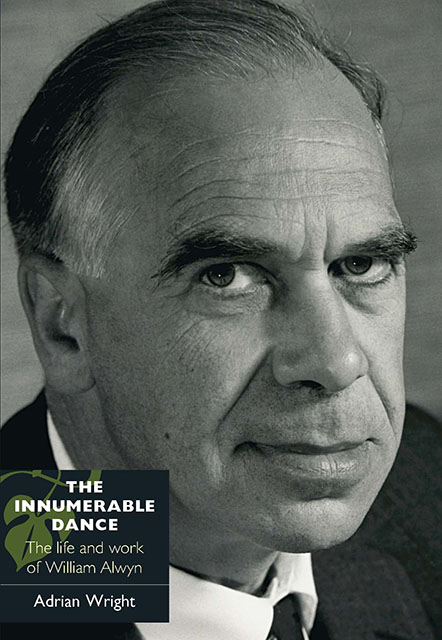Book contents
- Frontmatter
- Contents
- Illustrations
- Preface and Acknowledgements
- Introduction
- 1 Early Closing
- 2 The Music of Northampton
- 3 A Number of Scotsmen
- 4 Olive
- 5 Union and Exile
- 6 A Purpose for Cinema
- 7 A War of his Own
- 8 Is Your Journey Really Necessary?
- 9 A Coming British Woman Composer
- 10 Towards a Festival
- 11 Questions of Inspiration
- 13 The Late Romantic
- 14 E-Day
- 15 Symphonic Reflections
- 16 Soundless Music
- 17 The Other Suffolk Composer
- 18 The Blythburgh Operas
- 19 The Stillness
- 20 Living and Learning
- 21 Precious Toy
- Epilogue
- Notes
- List of Alwyn’s Works
- Discography
- Bibliography
- General Index
- Index of Alwyn’s Works
11 - Questions of Inspiration
Published online by Cambridge University Press: 10 March 2023
- Frontmatter
- Contents
- Illustrations
- Preface and Acknowledgements
- Introduction
- 1 Early Closing
- 2 The Music of Northampton
- 3 A Number of Scotsmen
- 4 Olive
- 5 Union and Exile
- 6 A Purpose for Cinema
- 7 A War of his Own
- 8 Is Your Journey Really Necessary?
- 9 A Coming British Woman Composer
- 10 Towards a Festival
- 11 Questions of Inspiration
- 13 The Late Romantic
- 14 E-Day
- 15 Symphonic Reflections
- 16 Soundless Music
- 17 The Other Suffolk Composer
- 18 The Blythburgh Operas
- 19 The Stillness
- 20 Living and Learning
- 21 Precious Toy
- Epilogue
- Notes
- List of Alwyn’s Works
- Discography
- Bibliography
- General Index
- Index of Alwyn’s Works
Summary
Even seven years after the end of the war, there was still steam in the British documentary industry, but Alwyn’s crucial role in it was effectively over. In 1952 he wrote scores for Royal Heritage and Alliance for Peace, and two years later co-wrote with Arnold Powered Flight: The Story of the Century, made for Shell Petroleum. Arnold would go on for a few more film documentaries, but this collaboration marked the end of Alwyn’s contribution. Radio had also provided a steady stream of commissions during the forties and post-war years, but this too was slowing down. For three years (1950–2) his only music for radio was for the Christmas Day feature on the Home Service and Light Programme, with Mathieson or Hollingsworth conducting the LSO. In 1953 the LSO under Mathieson played his score for the programme celebrating the Queen’s Coronation, Long Live the Queen, and the same day listeners heard his music for another Coronation special, Coronation Day across the World.
With commissions for radio and documentaries coming to an end, Alwyn flirted with television but with little impact; nothing, of course, to rival Britten’s television-made opera Owen Wingrave, and he seems never to have been invited to create a television opera. In 1951 his first major commission from the BBC Television Film Unit was for a feature on the sculptor Henry Moore, its music recorded on 20 April. Alwyn described his score for Henry Moore: Sculptor as ‘formal music composed for a film and working within the confines of rhythmic but often arbitrarily balanced film cutting’. A montage shows Moore working at various stages on a statue, where ‘the music is in the form of a Passacaglia – a series of formal variations on a ground bass, and is scored for String Quartet, Bass Clarinet and Vibraphone. Note how the variations are linked to the actions – for instance, the sculptor’s motions to the accompanying musical figuration. Incidentally this piece is interesting to me in that it reminds me how the composer’s mind subconsciously reacts to the visual stimulus. I have chosen a classic form – the favourite device of Purcell – because the whole scene has a classic and detached formality to me.’
- Type
- Chapter
- Information
- The Innumerable DanceThe Life and Work of William Alwyn, pp. 132 - 145Publisher: Boydell & BrewerPrint publication year: 2008



